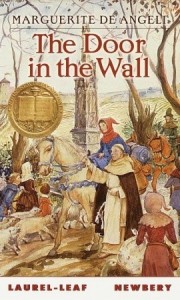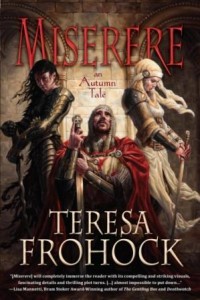 Bent Not Broken by William R. Potter is a contemporary romance about a man with OCD finding the girl of his dreams and the struggles he faces, both in the world and in his own head, as he courts her.
I picked this book up as part of the research I was doing for my latest project since I have no experience with OCD, and my main character has a pretty severe case. But I picked it up as a reader as well as a writer. The premise was so intriguing. I love romances of all flavors, but I also love wounded or flawed characters. A character that has to fight against himself in order to win a chance at love? Let me at him.
Bent Not Broken by William R. Potter is a contemporary romance about a man with OCD finding the girl of his dreams and the struggles he faces, both in the world and in his own head, as he courts her.
I picked this book up as part of the research I was doing for my latest project since I have no experience with OCD, and my main character has a pretty severe case. But I picked it up as a reader as well as a writer. The premise was so intriguing. I love romances of all flavors, but I also love wounded or flawed characters. A character that has to fight against himself in order to win a chance at love? Let me at him.
As I’ve said before, I think an important aspect of portraying disabilities is the details an author gives. And there were plenty of details in this book. I was never in doubt of what Dwayne was feeling. His mental state was laid bare for the reader to see no matter how hard he tried to hide it from the rest of the characters. In fact, I almost feel like there might have been too many details. It read like a report with the author listing everything that Dwayne was thinking and feeling. I guess I would have liked more showing and less telling. This could have been a deliberate choice on the author’s part – a way to illustrate Dwayne’s state of mind. Unfortunately, I couldn’t tell. And if I can’t tell, then that choice hasn’t really been made clear.
There were also quite a few loose ends that seemed to blow in the breeze and their flapping was very distracting. Things that were mentioned that I assumed would be important ended up being left forgotten by the end of the book. Little things and big things alike. For example, the girlfriend’s cats. Dwayne is supposed to take care of them while Dee-Dee’s gone, but he falls into a drunken stupor for four days, forgetting about the cats. Dwayne and Dee-Dee fight, she comes home, they make up – but the cats are never mentioned. Not even so much as a “Hey, I’m sorry I killed your pets.”
And in the end I was disappointed with the depth of the story. There were so many places where the story could have been more vibrant, but instead of pulling out the shovel and digging into the things that made the book unique, Potter merely skimmed the surface. For instance, I wanted some discussion about the fact that Dwayne refused to treat his OCD, instead self-medicating with alcohol. This could have been a really interesting flaw, providing room for character growth. But it was a depth left unplumbed.
Overall, I did like the story. I thought the relationship was cute, and I was left wanting to know what happened next, which is mostly a good thing. I found myself really sympathizing with Dwayne; I felt his panic and his frustration with himself until he finally wanted to change so much that he sought the help he needed to become the man he wanted to be. And the descriptions of his OCD were so vivid that I wanted to reach in and cuddle him and intervene for him with the other characters. “Look what he’s going through. Can’t you see how hard it is?” But I was left with mixed feelings. I think this novella could have used a couple more drafts before hitting the press.



